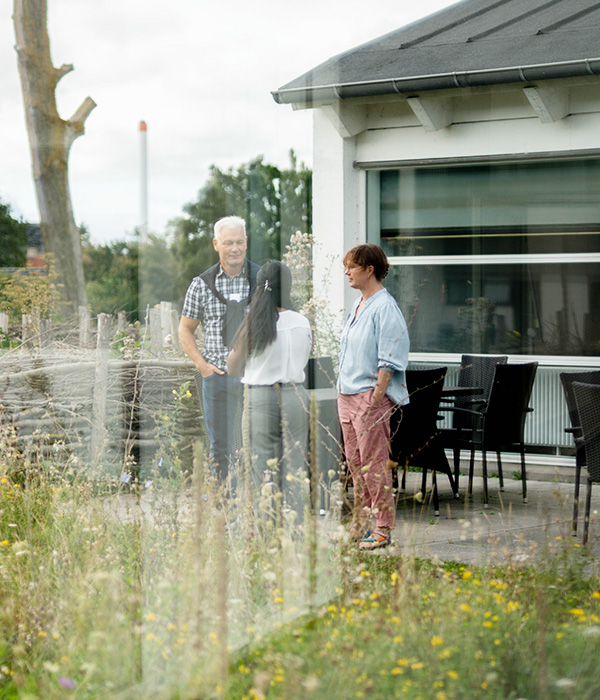Strong Workplace Communities
Core Culture: Create a common framework for the purpose and core task
Having a good workplace community – or a well-defined core culture – lays the foundation for organisational results and long-term success. When you know exactly where you are headed and how to collaborate with your team to achieve your goals, you are at your most effective. At the same time, a strong sense of community enhances workplace wellbeing and job satisfaction – which has a significant positive impact on stress and workplace conflict.
What do we mean by workplace communities?
At Human House, we refer to strong workplace communities as core culture. We use this term because building a strong workplace community centres around the organisation’s core tasks – its core culture. In an effective workplace community, everyone is familiar with the organisation’s clearly defined core task, and everyone comprehends how their unique contribution is essential to fulfilling it. Day-to-day practices and behaviours across the organisation support the core task. And the need for this has never been greater. In Denmark, mental health challenges such as stress are a growing concern, affecting both organisations and individuals.
How do strong workplace communities help?
Create a shared framework of understanding, ensuring alignment in day-to-day work and task allocation
Employees are more likely to consider collective and organisational needs when prioritising daily tasks
The risk of conflict and stress caused by differing priorities is reduced
Everyday conversations focus on improving and optimising tasks, rather than individual preferences or privileges

How do workplace communities prevent stress and conflict?
When leaders and teams share a common understanding of their tasks, work is no longer guided by individual interpretations, but by clear, collective agreement. This is crucial because when individual employees – despite their best intentions – follow their own understanding, without coordination with colleagues or management, it leads to both stress and conflict.
Not only does this erode the sense of community, it also makes it impossible to meet everyone’s personal expectations. This can lead to a sense of losing control – and if there’s one thing that fuels stress and conflict, it’s lack of control.
How do you create a strong workplace community?
Ensuring a good working community requires everyone in the team and the organisation to consider the core task in all aspects of their work. It must always be the task and the interests of the community that determine both decisions and the way the team works.
Our starting point is always the OLFA model. The OLFA model provides a shared awareness of how the organisation, leadership, community, and individual each contribute to the common goal.
Each letter in the model is based on an abbreviation of Danish terms.

Organisation
What is the core objective?

Leadership
What are the boundaries?
What is the direction?

Community
What agreements do we have?
Which actions do we need to take to achieve our objectives?

Employee
What behaviour (experience, skills, attitudes, perspectives, values) support the community’s ability to complete the task?
How we help you build a strong workplace community
The individual level
- Leadership coaching
The team level
- Presentation focusing on organisational, strategic, individual, stress, cultural, or communication themes
- One-day session covering themes such as TRIO collaboration, communication, physical workflows, and office design
- Process over time with a focus on sickness absence, mergers, or organisational actions
The strategic level
- Employee branding, shaping current tasks, workflows and structure, strong leadership, technological advancement, and cultural change
- Leadership coaching
- Programme for top management
- Workplace communities as an integral part of municipal strategic planning
Core Culture online
Core Culture is a free online tool designed to help leadership teams develop and manage strong workplace communities, with the aim of preventing and reducing stress.
Core Culture was developed by Human House in collaboration with Tivoli, HAB, Nordic Computer, Aarhus Vand, Aron, and the Velliv Association.
The tool is only available in Danish.



